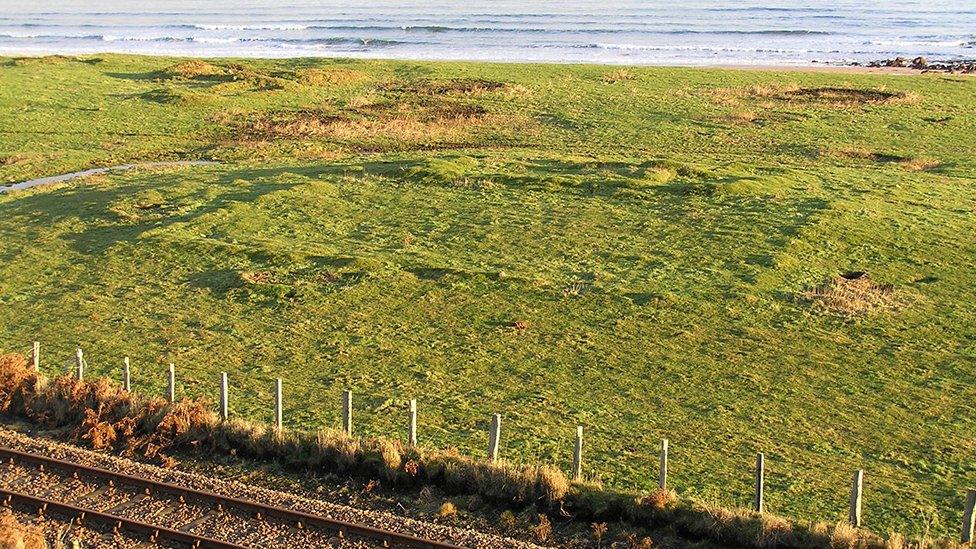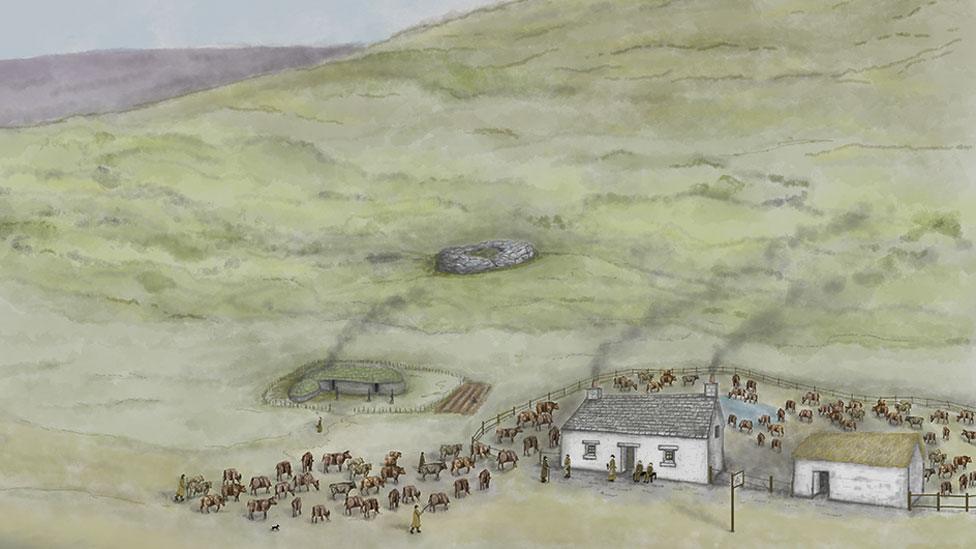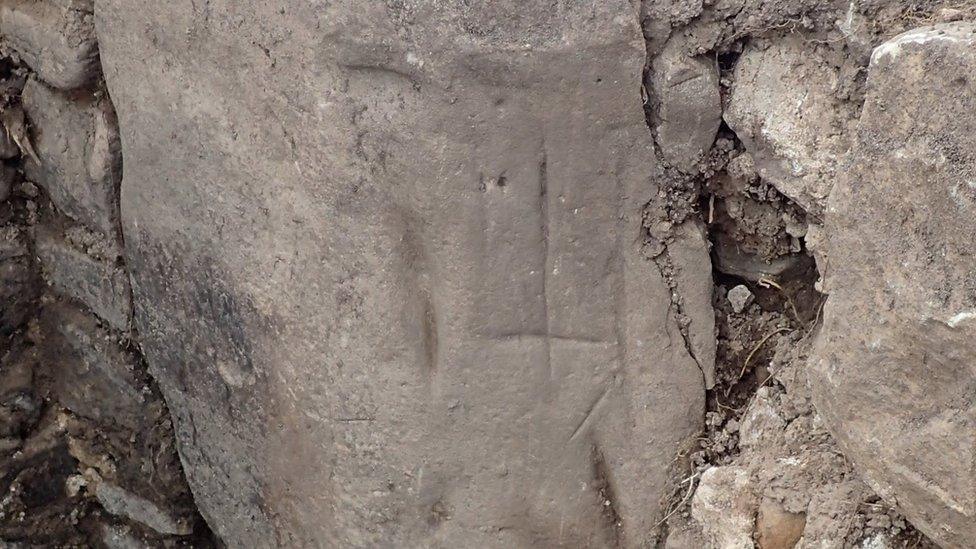Archaeologists reveal finds at drovers' inn in Sutherland
- Published

The site of the former drovers' inn in Sutherland
Archaeologists have revealed the finds made in an excavation of a lost inn.
Coins and shards of shot glasses were among the discoveries at Wilkhouse, near Brora in Sutherland, in the dig led by Glasgow-based Guard Archaeology.
Hearth stones, among the few remains of the 18th Century building's structure, were also uncovered.
An inverted cross found carved into one of the stones may have been intended to deter witches flying down the inn's chimney, the archaeologists said.
The property was built next to a drove road, a route used for moving cattle to markets and also by other travellers.
Guard Archaeology said the inn was likely to have thrived from passing during the 17th Century.

An illustration of the inn when it was thriving from passing trade
It was constructed with harled stones, lime mortar bonding, glass windows, double chimneys and a slate roof.
The level of investment suggested there was ample passing trade to warrant the amount of money spent on its construction, the archaeologists said.
Many other drovers' inns in Scotland at the time were often a longhouse built of drystone with wooden shuttered windows, low walls, central hearths set on the floor and a turf or thatched roof.
But various changes led to the demise of the inn at Wilkhouse.
This process began with the drove road being moved up a hillside and out of sight of the property.

An inverted cross was found carved on a hearth stone
There was also competition from inns in nearby Brora and Helmsdale, before the land in the area was cleared of people in the 19th Century during the Highland Clearances.
The inn fell into ruin soon after a railway was built through the area.
Clyne Heritage Society, University of Glasgow, newly-trained archaeologists and local volunteers also worked on the excavation.
Guard Archaeology has published a report on the finds made.